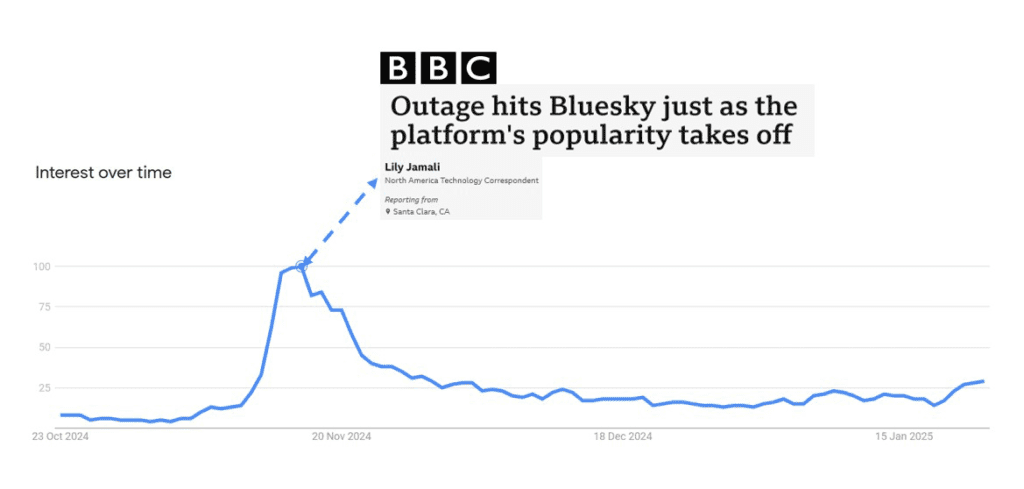The inauguration of President Donald Trump earlier this month marks an important moment for social media platforms. Almost 20 years on from the launch of Twitter, social media has drifted away from one of its original goals of being digital town squares. They once symbolised spaces for open dialogue and shared ideas.
This quality of the social media of yesteryear feels increasingly out of reach. X’s owner Elon Musk is leading Donald Trump’s new Department of Government Efficiency, Meta’s Mark Zuckerberg is scaling back moderation on Meta, and emerging platforms that could replace the incumbents are struggling to gain momentum.
The redevelopment of the digital town square doesn’t spell the end of social media, but it does require a shift in communications strategies. Platforms are now fractured and unpredictable, forcing organisations to rethink how they engage with audiences. By understanding these new dynamics and prioritising controlled digital spaces, businesses can navigate the evolving landscape while protecting their trust and influence.
The role of X in 2025
Despite its declining user base and changes to moderation, X is still valuable for monitoring breaking news and public sentiment. Its real-time newsfeed hasn’t been successfully replicated by any other platform.
The platform is however on borrowed time. It is becoming increasingly polarised, with more extreme views gaining prominence.
Organisations are responding to this. Reddit, for example, has seen several of its major subreddit communities banning X links due to concerns over the spreading of misinformation.
For businesses, the growing instability of X means its benefits must be regularly weighed against the reputational risks of staying active on the platform.
Meta’s radical change to moderation
Meta’s decision to abandon third-party fact-checking may not have been as widely reported in the UK as in the US, but it is a turning point in the trustworthiness of Instagram and Facebook content. At the start of this year, Zuckerberg announced that Meta platforms will rely on ‘Community Notes’ from contributing users. Meta also intends to lift restrictions on some political topics.
It’s no coincidence that these Community Notes will mimic X’s own approach to moderation. This pivot, positioned as empowering users, is designed to appease Trump. It will also reduce Meta’s fact-checking costs. It currently works with hundreds of fact-checking companies across the world.
This may feel like an American issue but these shifts are far from trivial for British organisations. Reduced moderation increases the risk of misinformation and reputational damage.
A cloudy forecast for Bluesky and other alternative social media platforms
Bluesky, a decentralised social platform, captured attention as an alternative to X in November last year and it looks, feels, and operates similarly to how Twitter ran in its earlier years. Users joined the platform to escape Elon’s X that aligned itself with Trump and saw a surge in sign-ups following Trump’s election win.
Bluesky adoption has slowed down since its increase at the end of last year. It now has a userbase of 29 million users, far below the billions of users on Facebook and Instagram. Search interest for Bluesky has also waned since November. Without widespread adoption, it is unlikely to establish itself as a viable space for corporate communications.

A Google Trends timeline depicting the level of search volume for Bluesky since October 2024.
A brave new world of digital corporate communications
If there’s one point that should be taken from these changes, it’s that you never owned your audience on any social media platform. As these channels grow more volatile and unpredictable, organisations need to prioritise driving audiences to spaces they can control, such as their own websites or email mailing lists.
This is a good moment to remember that every social media post should have a purpose beyond generating engagement. Including calls-to-action that direct users to owned platforms is now non-negotiable. Whether through blog posts, downloadable resources, or event sign-ups, teams must focus on converting social interactions into meaningful engagements.
You should also be ready to test new platforms alongside regularly evaluating if you should dial activity on existing platforms such as X up or down depending on the political and public perceptions towards them.